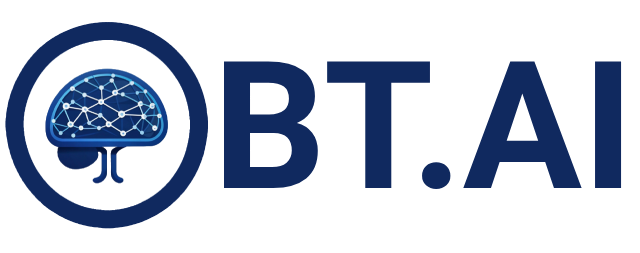How to Choose the Best AI Tools for Marketing in 2023
The influence of artificial intelligence (AI) is no longer confined to the realm of futuristic or specialized technologies. Indeed, it’s an undeniable fact that AI is revolutionizing a wide range of industries, including the field of marketing. Through AI-driven technologies, marketers can automate various tasks, enhance campaigns, produce content, scrutinize data, customize user experiences, and much more.
However, the real challenge lies in navigating through the vast array of AI marketing tools available and selecting the ones that perfectly suit your requirements. How do you assess their capabilities, advantages, expenses, and constraints? How can you confirm they are in harmony with your objectives, target audience, and brand identity?
In this comprehensive guide, we aim to tackle these queries and assist you in identifying the most effective AI marketing tools for 2023. We will delve into:
- The nature of AI marketing tools and their functionality
- The advantages of utilizing AI in marketing
- The potential difficulties and hazards of employing AI marketing tools
- The procedure to contrast various AI marketing tools in terms of their features, ease of use, performance, integration capabilities, customer support, and cost
- An overview of the top AI marketing tools in 2023 across diverse categories, such as content creation, social media oversight, email marketing, SEO, data analysis, chatbots, among others
By the conclusion of this guide, you’ll have a clear understanding of how to select the most suitable AI marketing tools for 2023 to help you expand your business and realize your marketing goals.
What are AI tools for marketing, and how do they work?
Marketing tools powered by artificial intelligence are platforms or applications utilizing AI to generate automated decisions. These decisions stem from the analysis and interpretation of gathered data in conjunction with prevailing market trends, all with the purpose of crafting a marketing approach that can predict the next steps of consumers.
These AI-based marketing solutions employ a wide range of methods including machine learning, natural language processing, computer vision, deep learning, and neural networks among others. By leveraging these techniques, these tools can study and learn from data, identify recurring patterns, produce actionable insights, generate content, fine-tune promotional campaigns, tailor personalized experiences, and much more.
For example, an AI tool for content creation can use natural language processing to understand a piece’s topic, tone, style, and audience. It can then use deep learning to generate relevant and engaging text based on existing data and best practices. It can also use computer vision to select appropriate images or videos accompanying the text.
Similarly, an AI tool for social media management can use machine learning to analyze the performance of previous posts and suggest optimal times, frequencies, formats, hashtags, captions, and more. It can also use natural language processing to generate responses to comments or messages from followers or prospects.
What are the benefits of using AI tools for marketing?
Using AI tools for marketing can offer several benefits, such as:
- Saving time and resources: AI tools can automate repetitive or tedious tasks such as content creation, social media posting, email writing, SEO optimization, data analysis, and more. This can save marketers time and resources that can be invested in more strategic or creative activities.
- Improving efficiency and effectiveness: AI tools can optimize campaigns using data-driven insights and recommendations. They can also test different variables and scenarios to find the best outcomes. This can improve the efficiency and effectiveness of marketing efforts and increase ROI.
- Enhancing creativity and innovation: AI tools can generate new ideas or content that can spark creativity and innovation among marketers. They can also provide feedback or suggestions that can improve the quality or relevance of existing content or campaigns.
- Personalizing experiences: AI tools can personalize experiences using data such as demographics, behavior, preferences, interests, and more. They can also segment audiences and tailor messages or offers accordingly. This can increase customer or prospect engagement, loyalty, conversion, and retention.
- Scaling up: AI tools can scale up quickly by handling large volumes of data or tasks without compromising quality or speed. They can also adapt to changing market conditions or customer expectations by learning from new data or feedback.
What are the challenges and risks of using AI tools for marketing?
While using AI tools for marketing can offer many benefits, they also come with some challenges and risks, such as:
- Lack of human touch: AI tools may need more human touch or emotion to build trust and rapport with customers or prospects. They may also need to capture the nuances or context of human communication or behavior. This can lead to misunderstandings or misinterpretations, damaging the brand’s reputation or customer satisfaction.
- Ethical and legal issues: AI tools may raise ethical and legal issues such as privacy, security, bias, transparency, accountability, etc. They may also violate the regulations or guidelines of different countries or industries. This can expose the business to legal liabilities or penalties.
- Dependence and over-reliance: AI tools may create reliance or over-reliance among marketers, who may lose their critical thinking or creative skills. They may also become complacent or lazy and need to monitor or evaluate the performance or outcomes of the AI tools. This can reduce the quality or effectiveness of marketing efforts or lead to errors or mistakes.
- Cost and complexity: AI tools may require a high price or complexity to acquire, implement, maintain, or update. They may also need much data or training to function properly or accurately. This can challenge small or medium-sized businesses or those with limited resources or expertise.
How to compare different AI tools for marketing based on their functionality, usability, performance, integration, support, and pricing?
To choose the best AI tools for marketing in 2023, you need to compare different options based on their functionality, usability, performance, integration, support, and pricing. Here are some questions you can ask to evaluate each criterion:
- Functionality: What are the features and benefits of the AI tool? What are the problems or goals it can help you solve or achieve? How does it work, and what techniques or technologies do it use? How does it compare to other similar tools in terms of functionality?
- Usability: How easy or difficult is it to use the AI tool? What are the requirements or prerequisites to use it? How user-friendly or intuitive is the interface or design? How much control or customization do you have over the tool? How does it compare to other similar tools in terms of usability?
- Performance: How reliable or accurate is the AI tool? What are the results or outcomes it can deliver? How fast or slow is it? How consistent or variable is it? How does it compare to other similar tools in terms of performance?
- Integration: How compatible or interoperable is the AI tool with other tools or platforms you use? How easily or difficult is integrating it with your existing systems or workflows? How flexible or adaptable is it to your specific needs or preferences? How does it compare to other similar tools in terms of integration?
- Support: What kind of support or assistance do you get from the AI tool provider? How responsive or helpful are they? What kind of resources or documentation do they offer? How do they handle feedback or complaints? How do they compare to other similar tools in terms of support?
- Pricing: How much does the AI tool cost? What are the payment options or plans available? What are the value propositions or return on investment of the tool? Are there any hidden costs or fees involved? How does it compare to other similar tools in terms of pricing?
By answering these questions, you can narrow down your choices and select the best AI tools for marketing in 2023 that suit your needs, budget, and expectations.
What are some of the best AI tools for marketing in 2023 across different categories, such as content creation, social media management, email marketing, SEO, analytics, chatbots, and more?
To help you further, we have compiled a list of some of the best AI tools for marketing in 2023 across different categories, such as content creation, social media management, email marketing, SEO, analytics, chatbots, and more. These tools are based on our research and analysis of their features, benefits, reviews, ratings, and popularity. However, we encourage you to research and compare before making a final decision.
Content Creation
The task of generating engaging content is critical and ubiquitous among marketing professionals. This involves crafting a variety of content forms such as blog entries, articles, digital books, white papers, case analyses, infographics, videos, podcasts, and much more. Regular production of content that is of high quality, germane, and captivating can be laborious, intricate, and costly for marketers.
AI-powered tools designed for content generation can aid marketers in streamlining or automating this process by producing content grounded on information, keywords, themes, target audience, and more. These tools also aid marketers in refining or boosting their content by offering feedback, proposals, editing services, formatting, and beyond.
Several superior AI-powered tools for content production in 2023 include:
- Jasper.ai: This is a highly sophisticated AI-powered tool for content production that leverages the GPT-3 model, a brainchild of OpenAI, to generate text that has a human touch. It can create a myriad of content types, such as advertising copy, emails, landing pages, articles, social media posts, and much more. It also comes with inbuilt templates for AIDA, Feature to Benefit, PAS, and Before-After-Bridge Framework. All that’s required of you is to insert your brand or product name, which will generate the copy for you. Furthermore, this robust AI tool can generate product descriptions for e-commerce stores. It can create bullet points or descriptions for Amazon products and formulate titles and meta descriptions with just a click.
- Writer: Writer is an AI tool for content creation designed for teams. It can help you create consistent and compelling content across your organization. It can also help you optimize your content for SEO, readability, tone, and style. You can use Writer to write blog posts, articles, emails, social media posts, landing pages, and more. You can also use Writer to edit or improve your existing content by checking for grammar, spelling, punctuation, plagiarism, and more. Writer also integrates with various tools such as WordPress, Google Docs, Gmail, HubSpot, Slack, and more.
- Hemingway App: Hemingway App is an AI tool for content editing that helps you make your writing clear and concise. It highlights sentences that are too long, complex, passive, or weak. It also suggests simpler words or phrases to replace them. It also shows you the readability score and grade level of your text. You can use Hemingway App to edit or improve content, such as blog posts, articles, emails, social media posts, and more.
Social Media Management
Social media management is another common and important task for marketers. It involves managing various social media platforms such as Facebook, Twitter, Instagram, LinkedIn, and Pinterest. Social media management can be time-consuming, challenging, and expensive for marketers who regularly create, post, monitor, engage, and analyze social media content.
AI tools for social media management can help marketers automate or simplify this task by generating content, scheduling posts, suggesting hashtags, captions, images, and more. They can also help marketers improve or optimize their social media performance by providing insights, recommendations, analytics, and more.
Some of the best AI tools for social media management in 2023 are:
- Flick: Flick is an AI social media management tool designed for Instagram. It helps you create engaging and on-brand content with ease. It offers AI Idea Brainstorming for distinct content concepts, AI Caption Writing for creating custom captions, and transforming lengthy content into digestible pieces for sharing. It also excels in Post Scheduling, facilitating the arrangement and timing of posts with a simple click. With features like Auto-Suggested Hashtags and a Hashtag Search & Manager, it further aids in effective content management and visibility enhancement.
- Chatfuel: Chatfuel is an AI tool for social media management that helps you create and manage chatbots for Facebook Messenger. Chatbots are automated conversations that can interact with your customers or prospects 24/7. They can help you provide customer service, generate leads, collect feedback, sell products, and more. Chatfuel makes it easy to create chatbots without coding or technical skills. To build your chatbot, you can use templates, drag-and-drop elements, plugins, integrations, and more. You can also use Chatfuel to analyze and optimize your chatbot performance using metrics, reports, A/B testing, and more.
- Grammarly: Grammarly is an AI tool for social media management that helps you write better social media posts. It checks your writing for grammar, spelling, punctuation, tone, style, and more. It also suggests improving your writing by using more vital words or phrases, adding emotion or personality, avoiding repetition or redundancy, and more. You can use Grammarly to write or edit any social media post, such as tweets, status updates, captions, comments, and more. Grammarly also integrates with various tools such as Facebook, Twitter, LinkedIn, Gmail, WordPress, and more.
Email Marketing
Email marketing is one of the most influential and prevalent marketing strategies. It involves sending emails to your customers or prospects to promote your brand, products, services, offers, events, and more. Email marketing can be challenging and competitive for marketers who need to create, send, track, and optimize email campaigns regularly.
AI tools for email marketing can help marketers automate or simplify this task by generating subject lines, headlines, body copy, calls to action, and more. They can also help marketers improve or optimize their email performance by providing insights, recommendations, analytics, and more.
Some of the best AI tools for email marketing in 2023 are:
- Phrasee: Phrasee is an AI tool for email marketing that helps you write better subject lines, headlines, and body copy. It uses natural language generation and deep learning to create human-sounding and brand-aligned text to increase your open rates, click-through rates, and conversions. Phrasee can generate text for any email, such as newsletters, promotions, welcome emails, cart abandonment emails, and more. You can also use Phrasee to test and optimize your email performance using metrics, reports, A/B testing, and more.
- Mailchimp: Mailchimp is an AI tool for email marketing that helps you create and manage email campaigns. It offers various features such as templates, drag-and-drop editor, segmentation, personalization, automation, integration, and more. You can use Mailchimp to create and send emails, such as newsletters, promotions, welcome emails, cart abandonment emails, and more. Mailchimp can also analyze and optimize your email performance using metrics, reports, A/B testing, and more.
SEO
SEO (search engine optimization) improves the visibility and ranking of your website or web pages on search engines such as Google, Bing, Yahoo, and more. SEO can be complex and competitive for marketers who need to optimize their website or web pages for various factors such as keywords, content, links, speed, mobile-friendliness, and more.
AI tools for SEO can help marketers automate or simplify this task by generating keywords, content, titles, meta descriptions, alt text, and more. They can also help marketers improve or optimize their SEO performance by providing insights, recommendations, analytics, and more.
Some of the best AI tools for SEO in 2023 are:
- Surfer SEO: Surfer SEO is an AI tool for SEO that helps you write better content that ranks higher on search engines. It analyzes the top-ranking pages for your target keyword. It suggests optimizing your content for various factors such as word count, structure, headings, keywords, images, etc. You can use Surfer SEO to write or edit any content, such as blog posts, articles, landing pages, product descriptions, and more. You can also use Surfer SEO to analyze and optimize your SEO performance using metrics, reports, audits, and more.
- Ahrefs: Ahrefs is an AI tool for SEO that helps you research and analyze your competitors, keywords, backlinks, traffic, and more. It offers features such as Site Explorer, Keywords Explorer, Content Explorer, Rank Tracker, Site Audit, and more. You can use Ahrefs to find and target the best keywords for your website or web pages, discover and replicate your competitors’ best backlinks, monitor and improve your ranking and traffic, identify and fix SEO issues on your website, and more.
- Yoast SEO: Yoast SEO is an AI tool for SEO that helps you optimize your WordPress website or web pages for search engines. It offers SEO analysis, readability analysis, schema markup, social media preview, XML sitemaps, breadcrumbs, and more. You can use Yoast SEO to optimize your content for your focus keyword, improve your readability and structure, add structured data to your pages, preview how your pages will look on social media platforms, generate and submit sitemaps to search engines, and more.
Analytics
Analytics collects, measures, analyzes, and reports data related to your marketing activities, performance, and outcomes. Analytics can be challenging and overwhelming for marketers with large and complex data sets from various sources and platforms.
AI tools for analytics can help marketers automate or simplify this task by generating insights, recommendations, predictions, and visualizations from data. They can also help marketers improve or optimize their marketing performance by providing guidance, feedback, actionable steps, and more.
Some of the best AI tools for analytics in 2023 are:
- Google Analytics: Google Analytics is an AI tool for analytics that helps you measure and understand your website or app traffic, behavior, conversion, and more. It offers features such as Audience, Acquisition, Behavior, Conversion, Real-Time, and more. You can use Google Analytics to track and analyze metrics such as sessions, users, bounce rate, page views, goals, revenue, and more. You can also use Google Analytics to segment and filter your data, create custom reports and dashboards, set up experiments and tests, and more.
- Fullstory: Fullstory is an AI tool for analytics that helps you understand and improve your digital experiences. It captures and replays every user interaction with your website or app. It also analyzes and segments your users based on their behavior, attributes, feedback, and more. You can use Fullstory to identify and fix issues or bugs on your website or app, optimize your conversion funnel or user journey, increase user engagement or retention, and more.
- Zapier: Zapier is an AI tool for analytics that helps you automate and integrate your data from various tools or platforms. It connects over 3,000 apps like Gmail, Slack, Mailchimp, Facebook, Twitter, and Google Sheets. You can use Zapier to create workflows or zaps that trigger actions based on events or conditions. For example, you can create a zap that automatically sends an email to a new subscriber or automatically updates a spreadsheet with new data from a form.
Chatbots
Chatbots are automated conversations that can interact with your customers or prospects 24/7. They can help you provide customer service, generate leads, collect feedback, sell products, and more. Chatbots can be challenging and expensive for marketers who regularly create, manage, and optimize chatbot conversations.
AI tools for chatbots can help marketers automate or simplify this task by generating chatbot scripts, responses, flows, and more. They can also help marketers improve or optimize their chatbot performance by providing insights, recommendations, analytics, and more.
Some of the best AI tools for chatbots in 2023 are:
- Rasa: An AI chatbot tool that helps you build and deploy custom chatbots for any platform or channel. It uses natural language understanding and machine learning to create conversational agents to understand and respond to natural language. You can use Rasa to develop chatbots for various purposes, such as customer service, sales, booking, surveys, and more. You can also use Rasa to integrate your chatbots with multiple tools such as Slack, Telegram, Twilio, Facebook Messenger, and more.
- Dialogflow: Dialogflow is an AI tool for chatbots that helps you create and manage natural and rich conversational experiences. It uses natural language processing and machine learning to understand and fulfill user requests. You can use Dialogflow to create chatbots for platforms such as Google Assistant, Facebook Messenger, Slack, Skype, and more. You can also use Dialogflow to integrate your chatbots with various services such as Google Cloud, Firebase, BigQuery, and more.
Conclusion
AI tools for marketing are powerful and valuable additions to any marketing team. They can help you automate or simplify various tasks, optimize or improve your performance, enhance or innovate your creativity, personalize or customize your experiences, and scale or adapt your efforts.
However, not all AI tools are created equal. You must compare and evaluate different options based on their functionality, usability, performance, integration, support, and pricing.
We hope this article has helped you find the best AI tools for marketing in 2023 that can help you grow your business and achieve your marketing objectives.
If you have any questions or feedback, please comment below.



